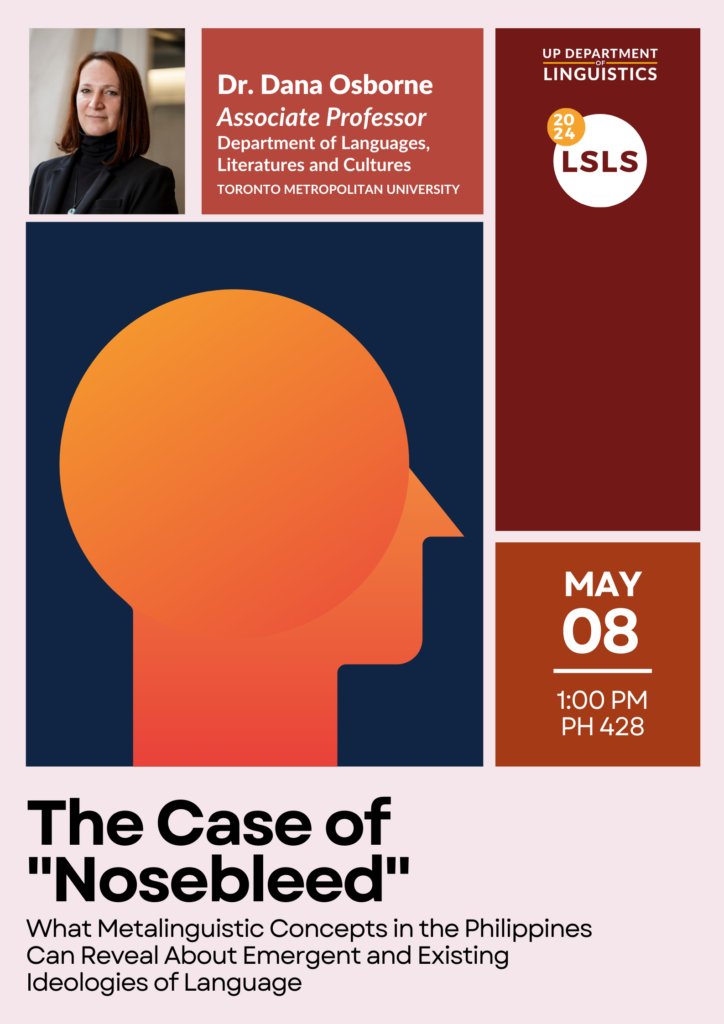The Case of “Nosebleed”: What Metalinguistic Concepts in the Philippines Can Reveal About Emergent and Existing Ideologies of Language | LSLS
- Date: 8 May 2024 | 1:00 PM - 2:30 PM

This talk revisits the concept of “nosebleed” as it is used in the contemporary Philippine linguistic scene with a focus on the function of the term as both shifting and polysemous in actual use. Drawing examples from both explicit commentary and actual uses of the term in naturalistic contexts, this analysis explores the porosity of the term “nosebleed,” and reveals it to be indexical of existing and emergent ideologies of language that go far beyond everyday descriptions, which often see it as a throwaway term. Of special interest in revealing the complexity of the term, “nosebleed” is explored in the conventional sense as describing linguistic encounters with languages such as English, but it is also revealed to be a kind of litmus for shifting linguistic ideological constructions and speakers’ orientations to other languages and varieties . Evidence for its use to describe encounters with other languages and varieties, register shifts, perceptually disfluent or non-native productions, among others, will be explored. In all, this talk will explore the ways in which languages, person-types, and bodies are intimately linked in emergent and existing ideologies of language in the contemporary Philippine linguistic milieu. The author warmly welcomes a fulsome discussion during the Q and A period with the audience after the presentation.
Dr. Dana Osborne is Associate Professor at Toronto Metropolitan University in the Department of Languages, Literatures and Cultures in Toronto, Canada. A linguistic anthropologist by training, Dr. Osborne specializes in investigating the dynamics of codeswitching and mixing in highly multilingual contexts, including most especially in the Philippine archipelago. Recent analyses have focused on the emergent meanings of the concepts of “nosebleed” and “deep language” as used by everyday speakers in the archipelago, and the ways in which these concepts reveal complex ideologies of language as speakers negotiate many languages at once. More recently, Dr. Osborne has focused on the concepts of nationalism and the emergence of political consciousness in and through language and is interested in exploring the ways in which everyday speakers build and maintain local linguistic and cultural identities in the massively multilingual contemporary linguistic milieu of the Philippines.
